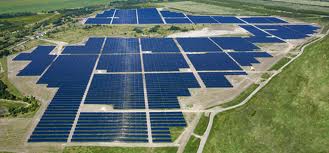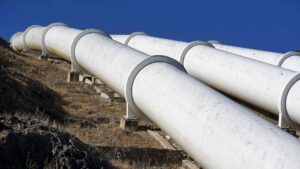Berlin energy officials, along with proponents of the Merkel government’s ambitious renewables plan, could have been forgiven for enjoying a moment of well-earned schadenfreude last week, after Germany came to the rescue of its nuclear neighbour, exporting huge amounts of electricity to France, whose power plants were struggling to meet demand during a freak cold snap.
As reported by Reuters, the move has silenced critics, who last year decried the Merkel government’s decision to shut down eight of Germany’s nuclear reactors in response to the Fukushima disaster in Japan.
As Zachary Shahan put it on CleanTechnica, everyone “got freaked out about how German electricity prices would rise and the country would just start importing electricity from France’s nuclear power plants.” But, he adds, it now “seems pretty clear that solar photovoltaics are bringing down the cost of electricity in Germany. Additionally, German electricity exports to France have been increasing!”
“The cold snap was a situation most experts feared and we managed without bigger problems,” said Stephan Schnorr, German power trader at utility Dong Energy, quoted in Reuters. In other words, far from putting Europe’s electricity supply balance at risk, as was predicted by many doomsayers, along with widespread blackouts, a nuclear-lite Germany negotiated the cold snap without incident, and even managed to extend a helping hand to those countries not so fortunate.
Meanwhile, France — usually Europe’s biggest electricity exporter — experienced a case of supply tightness last week that pushed its power prices to two-year highs and prompted the grid to issue directives to the public urging them to refrain from using their washing machines and coffee makers.
France, whose electricity demand has been reaching new record highs nearly every winter, relies heavily on electric heating developed by successive governments to meet supplies generated by the country’s 58 nuclear power reactors. According to Reuters, 30 percent of homes use electric heaters and as many as 65 percent of new homes are heated using electricity.
The report says that French electricity demand rises by 2,300MW, or the equivalent of two nuclear power reactors, per one degree Celsius drop in temperatures during winter, double the demand surge seen 20 years ago.
This meant that when demand reached a new all-time high last Wednesday, France was forced to import from Germany at full capacity in nearly all hourly blocks, according to grid operator data.
At the same time, Germany, which houses 37 per cent of the world’s solar plants, relied on its growing renewable energy output and resurrected idled coal-fired plants to cover a rise in electricity demand, says Reuters.
And while a spokesman for Germany’s largest high-voltage network, Amprion, described the situation on the network as very tense, and requiring more network intervention than normal, the situation remained under control, he said.








